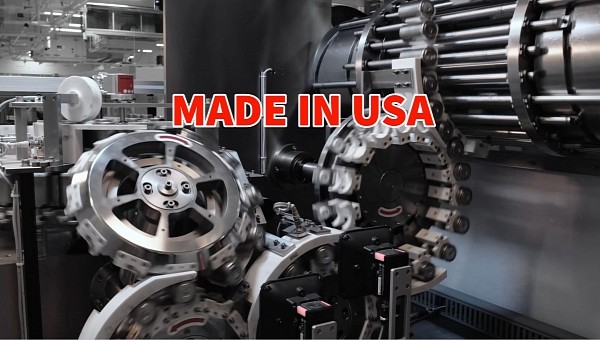Tesla is unusual in the auto industry thanks to its highly integrated production. This means the EV maker produces most of the components needed to assemble its vehicles in-house. This is set to change, at least regarding battery cell production. Thanks to the IRA incentives, Tesla will produce the cells in the U.S. and ship them to Germany for use at Giga Berlin.
The Inflation Reduction Act (IRA) was a time bomb set off last year in the U.S. to encourage local EV and battery production and break away from the Chinese supply chains. It nevertheless had unintended consequences, rattling U.S. allies in Europe and South Korea. The tax credits granted under the IRA do not apply only to electric vehicles but also to Li-ion battery production. With as much as $45 per kWh offered to companies making battery cells in the U.S., the production costs are cut in half. This is a strong incentive to move battery cell production to the U.S.
This explains why many carmakers and battery manufacturers have announced new production facilities in North America. It's also why Hyundai would not be able to sell many units of the Ioniq 6, despite offering a crippled, short-range version of the car in the U.S. to make it cheaper. The starting price might be lower than the Tesla Model 3, but this is only until you factor in the $7,500 tax credit that Hyundai buyers cannot access. After that, choosing the cheaper but more performant Tesla EV is a no-brainer.
In Li-ion battery manufacturing, the IRA incentives mean there's no reason to locate production in low-income countries. With half of the costs covered by the U.S. government, production in the U.S. looks more compelling than ever. So much so that Tesla is willing to change its vertically integrated business model. As anticipated last September, the IRA incentives upended Tesla's plans to build 4680 cells at Giga Berlin because it doesn't make sense anymore.
This has been confirmed by a Tesla spokesperson in a statement cited by Reuters. Tesla has started to manufacture certain battery components in Gruenheide and is assembling the battery packs on the spot for use in EVs produced at Giga Berlin. Still, it doesn't make the Li-Ion cells locally and won't make them for a while. The reason is that Tesla prioritized cell production in the U.S. to benefit from the generous tax incentives offered through the IRA program. Tesla also said cars produced at Giga Berlin would "in the near future" contain locally assembled batteries.
Tesla is one of the first companies to declare a strategy shift prompted by the IRA package. Others are contemplating a similar shift, causing European officials to worry about the IRA encouraging companies to abandon Europe in favor of the U.S. A spokesperson for the German economy ministry said on Wednesday that they are "working on clearing up the reasons" behind Tesla's decision. Brandenburg's economy ministry showed optimism, saying they do not expect Tesla's change of plans to impact the number of jobs at Giga Berlin.
This explains why many carmakers and battery manufacturers have announced new production facilities in North America. It's also why Hyundai would not be able to sell many units of the Ioniq 6, despite offering a crippled, short-range version of the car in the U.S. to make it cheaper. The starting price might be lower than the Tesla Model 3, but this is only until you factor in the $7,500 tax credit that Hyundai buyers cannot access. After that, choosing the cheaper but more performant Tesla EV is a no-brainer.
In Li-ion battery manufacturing, the IRA incentives mean there's no reason to locate production in low-income countries. With half of the costs covered by the U.S. government, production in the U.S. looks more compelling than ever. So much so that Tesla is willing to change its vertically integrated business model. As anticipated last September, the IRA incentives upended Tesla's plans to build 4680 cells at Giga Berlin because it doesn't make sense anymore.
This has been confirmed by a Tesla spokesperson in a statement cited by Reuters. Tesla has started to manufacture certain battery components in Gruenheide and is assembling the battery packs on the spot for use in EVs produced at Giga Berlin. Still, it doesn't make the Li-Ion cells locally and won't make them for a while. The reason is that Tesla prioritized cell production in the U.S. to benefit from the generous tax incentives offered through the IRA program. Tesla also said cars produced at Giga Berlin would "in the near future" contain locally assembled batteries.
Tesla is one of the first companies to declare a strategy shift prompted by the IRA package. Others are contemplating a similar shift, causing European officials to worry about the IRA encouraging companies to abandon Europe in favor of the U.S. A spokesperson for the German economy ministry said on Wednesday that they are "working on clearing up the reasons" behind Tesla's decision. Brandenburg's economy ministry showed optimism, saying they do not expect Tesla's change of plans to impact the number of jobs at Giga Berlin.







